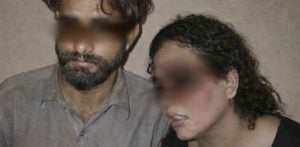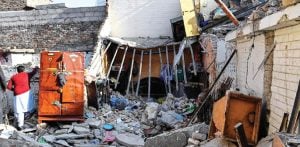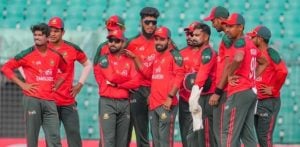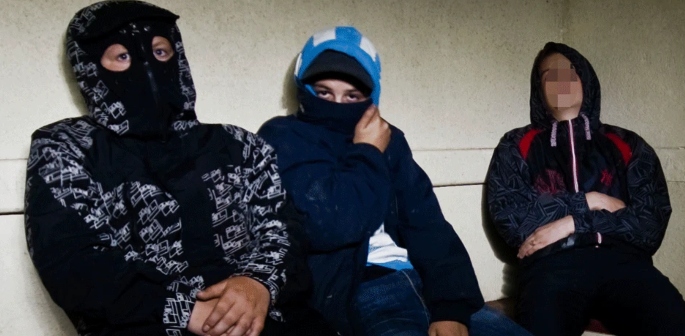“I would never wish those years on any parent"
The earliest Pakistani immigrants, mostly comprised of single men, arrived as workers with every intention to leave after accumulating some wealth.
There was, however, a catalyst for change – the 1962 Commonwealth Immigration Act.
This legislation introduced a ‘voucher system,’ enabling those already residing in Britain to facilitate the reunification of their families.
It transformed the transient labour movement into a permanent establishment of complete households.
As Pakistanis and other immigrant communities integrated into the tapestry of British identity, the contemporary nation began to take shape.
The children of these early immigrants have established themselves as trailblazers across industries.
On the surface, it may seem as if integration has been seamless.
However, there lies a more complex narrative – one that revolves around the emergence and growth of gang culture within British Pakistani communities.
This shadowy underworld is characterised by violence, criminal activities, and the lure of a pseudo-familial structure.
In turn, this raises questions about the dynamics of belonging, identity, and the challenges faced by these communities.
The Warmth of Fake Family

On a cold evening in early November, DESIblitz headed to a meeting for recovering drug addicts at a local mosque, hoping to learn what gang culture means to those who were once directly at the heart of it.
Walking in 20 minutes early and damp from the heavy rainfall, it was quickly established we were the anomaly.
Arif, aged 42, a successful accountant and community leader, can’t help but laugh.
In a spacious room, with soothing furnishings, Persian rugs in piles and plotted pants filling the corners, the smell of biryani flows from the kitchen.
Arif explains that the volunteers are preparing a banquet for the prayer-goers.
Men stand over industrial-sized pots, sharing anecdotes about their kids as spice-infused steam engulfs the cooking area.
One suave man video calls his daughter, who charms his way out of being scolded for accidentally leaving the front door open all night.
It was a surprise when the news broke that he spent a decade in prison. Describing “the lads”, Imam Arif explains:
“You could say they’re rough around the edges [laughs] but they’re pure-hearted and some of the most genuine people you will ever meet.
“They need connection… [and] deserve kindness, as everyone does. That’s what we’re trying to do here.
“Provide community and support, things that draw most people to gangs in the first place.”
It becomes apparent, that if gangs have a USP, it is the ability to make vulnerable young people feel as if they have finally found solace and family.
In 2021, an investigation found that drug dealers are increasingly targeting children’s care homes to groom them into becoming runners.
Children in care are some of the most vulnerable in our society.
Lacking the security of a nuclear household, they are more susceptible to trusting an older brother figure who might occasionally want you to sell drugs for him.
When your biological mum and dad can’t remember your birthday, would you turn away the drug dealers who hosted a surprise celebration for your 18th? 32-year-old Mustafa didn’t.
Mustafa grew up in Huddersfield and thought he was like any other child.
His mother would stay at home, tending to himself and his younger sisters, whilst his dad worked shifts in a factory.
They would all eat as a family around their dining table and crowd around the TV on weekends to watch Bollywood movies and reruns of Coronation Street.
He remembers his holidays in Pakistan vividly, stating:
“We would go to Pakistan at the start of winter and stay there for months, man. I used to love it.
“We would be in the fields all day, running around and getting into trouble.
“There was a girl. I thought she was my cousin, but she always swore she was my sister. I didn’t take her seriously.
“One time, our grandfather beat her up. When I asked her ‘why’, she said I was her brother.”
Mustafa returned from a holiday in Pakistan when he was 11 years old and his world fell apart.
His parents were divorcing, and his mother was taking his sisters but not him. He was being left alone with his dad, who often went missing for days:
“I didn’t know what I had done wrong, why she didn’t want to take me away with her.
“I heard it on the phone one day. ‘You can keep him’, she said to my dad, he’s not my son. He’s not yours either.”
The girl in Pakistan was telling the truth, she was his sister.
Mustafa was adopted by his uncle, the man he thought was his dad his entire life.
His biological parents were poor, so when a wealthy uncle offered to raise one of their sons in England, they couldn’t refuse.
Mustafa’s uncle wanted a son to pass his legacy on but with a wife who gave birth to two daughters after seven years of marriage, he turned to desperate measures.
In this process, he ruined an innocent life.
After finding out the truth, Mustafa quickly fell down the wrong path.
The UK, and Huddersfield, were all he knew so the thought of living with his real family in Pakistan was an impossibility.
When he did try to connect with his biological family, there were many barriers in the way – particularly a language one.
They wanted him to stay in the UK, make something of himself, and send money back home.
He resented this responsibility, thrust upon him by those who were essentially strangers. He states:
“My uncle stopped coming home. He started to drink after his divorce.
“Then he got remarried to a woman who wanted nothing to do with me. Honestly, I don’t blame her.
“I was a bad kid. I was on the streets a lot. You pick up things, you meet people.
“I had no one. I had no one who cared for me and then I met people who I thought did.
“They took me under their wing but man, I wish they didn’t.”
Mustafa is vague when he talks about this part of his past.
The pain is visible on his face and in his body language as he talks about missing his mother’s funeral, his overdoses which almost proved fatal, and the long winter months he spent homeless.
Vulnerability is exploited by gang culture, lulling the lonely into crime by creating pseudo-familial structures.
Bradford, a hotspot for gang violence, saw England’s joint third-largest percentage-point rise in the proportion of lone-parent households (from 11.1% in 2011 to 13.1% in 2021).
It then makes sense that those from broken families try to create their own ‘families’ within gangs.
They speak the same language of neglect, impoverished upbringings, abuse, and social ostracisation.
Mustafa’s story is an extreme one, but it highlights the dysfunction present in many British Pakistani families.
The “everyone knows everyone” culture is all too familiar in British Pakistani communities. But what if this is to the detriment of its youth?
What is the use of a tight-knit family if you cannot turn to them at your worst?
Mustafa’s adopted family allowed him to become homeless and his biological parents believed the path he was on was entirely self-inflicted.
According to them, he was wasting the opportunities available to him in England.
They dismissed his extreme loneliness and depression, urging him to persevere.
When he turned to drugs and crime, they turned a blind eye.
If they acknowledged what Mustafa was doing, they would have to admit their failings as his parents.
They decided that acknowledging his pain and unhealthy coping mechanisms would be an acceptance of their wayward son who had brought disgrace to the family name. Mustafa says:
“I wish I found something like this [support group and free therapy service at the mosque] sooner. I just needed someone to care.”
The male loneliness epidemic is widely researched. It is also understood that this need for community can often manifest in gang affiliation.
In a 2015 briefing, produced as part of the Ending Gang and Youth Violence programme, Public Health England found that risk factors include:
- Adverse childhood experiences
- Poor attachment to caregivers
- Social exclusion
- Disadvantaged neighbourhoods
For members, the gang becomes a brotherhood which replaces family. In the words of Ikhlaq Din from his 2006 report on Bradford’s gangs:
“They see their family or biraderi (kin) as a controlling institution that fails to give the necessary support.
“Membership of a ‘gang’ can give the young person support and respect often denied by his family who imposes obligations and expectations he realises that he cannot meet.”
These issues point to a collective identity crisis, where too many young people are experiencing a loss of belonging to the communities that once raised them.
The Economics of Gang Culture
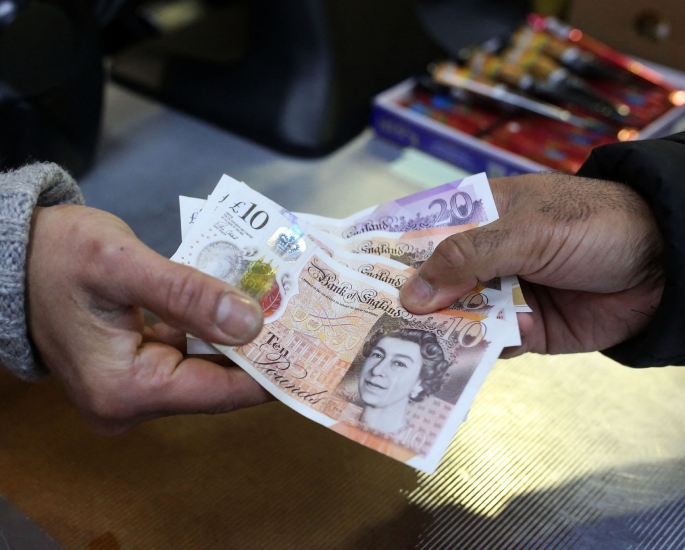
Gangs attract young people from all economic backgrounds.
However, gangs from lower-class and poor neighbourhoods are far greater in number than those from middle and upper-class neighbourhoods.
There are numerous reasons for this.
Gangs provide safety in hostile environments, they create a community and can often help members leverage respect from others.
Arguably, the biggest incentive to join gangs, particularly in the British Pakistani community is financial.
In Ikhlaq Din’s previously mentioned paper, he interviewed teenagers in 2006.
He recorded some of them talking about the economic appeal of joining gangs. A 16-year-old boy said:
“Many of the lads are unemployed, they say there isn’t much to do, and they say they don’t have much money.
“The young people in the area can feel down and helpless that they can’t find a job.
“They also see their dads, uncles and others also unemployed. It does have an effect.”
Furthermore, a 16-year-old girl stated people join gangs because of a number of reasons:
“Well, a lot of things like unemployment, no jobs, no money, boys just dossing about and poverty in the area.
“I think it affects the boys more because they think they won’t be able to support their parents or families when they get married.”
Not much has changed since 2006.
In 2021, the lowest employment rate in the UK was in the combined Pakistani and Bangladeshi ethnic groups (58%).
This is in comparison to 82% of ‘white other’ and 78% of Indians in full employment.
Is there a historical reason behind this?
The initial wave of Pakistani immigrants to the UK arrived after World War II.
This was in response to an invitation from the British government to work in low-income jobs, primarily in factories due to post-war labour shortages.
However, they faced racial abuse and accusations of taking away local jobs.
The lack of investment, especially in the Northern towns, means they have historically had limited opportunities.
Those who pursued higher education often returned to their hometowns, accepting the pressure to stay close to their parents and families.
Upon their return, there were few high-paying jobs and relocating to expensive cities like London was often unfeasible.
Racial discrimination also made it challenging for them to secure employment in white-owned businesses.
Gradually, attitudes towards British Asians improved, and overt racism decreased.
However, the initial mindset within the Pakistani community persisted, leading many to accept low-paying jobs or turn to a life of crime.
Even in the modern day, these areas continue to lack substantial opportunities for those who wish to improve their circumstances.
While some British Pakistanis have entered professional and office jobs, it remains difficult for the entire community to shift their collective mindset.
There’s a notable difference between the Pakistani communities that arrived in the UK primarily for low-income jobs and those who came under skilled immigration visas.
Imran, aged 38 and now a plumber, revealed that:
“My wife’s parents, who immigrated from Pakistan under skilled visas in the early 2000s, prioritised education for their kids.
“It paid off. Now, all their children are working white-collar jobs.
“My dad came in the 80s to work in factories. He didn’t prioritise education for me and my brother.
“He pushed us to enter the workforce early to contribute to the family income.
“My brother stayed at it, working away at the factory. I was impatient, young, stupid.
“There was pressure, we had to build houses back home, pay for weddings, and bring more family over from Pakistan.
“Our dad was getting older and weaker; he couldn’t work as much.
“I started selling drugs, it wasn’t a lot at first.”
“But even in those early days, I was bringing more money home in a week than my dad and brother would bring in three, four months.
“Once you start, it’s impossible to stop until you’re locked up, or until you’re dead.”
The British Pakistani community, like others, faces the cycle of poverty, where those born into poverty are more likely to remain there, while those born into wealth continue to prosper.
However, the unique challenge for the British Pakistani community is that they initially migrated to impoverished areas in the UK and continue to face limited opportunities.
Rarely do people of any race seek high-paying jobs in places like Bradford, Rochdale, and Blackburn, as these areas lack economic options.
Wider Impact
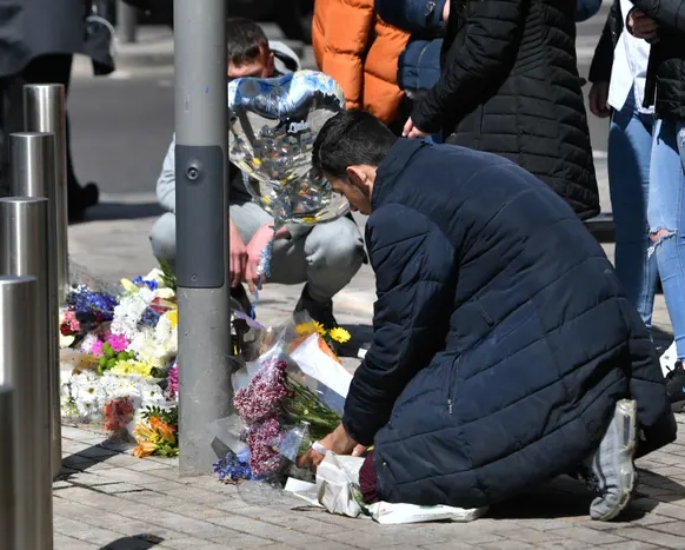
We have talked a lot about those who were once right in the middle of gangs and criminal activity, but what about those affected by it?
Some of the men in the local mosque that DESIblitz visited are former drug addicts and “proper troublemakers” (as another community leader coined in between bites of roti).
But they are greeted with enthusiasm and affection. Although, this wasn’t always the case.
61-year-old Mr Ahmed, a taxi driver talks of his relationship with his son:
“I didn’t speak to him for many, many, many years.
“I didn’t know why he was doing this. I gave him everything, whatever I could do, I did.
“He kept in touch with his mum.
“She wanted us to forgive him, she would try to bring him to the mosque and bring him back home. He had a daughter out of wedlock. Meri Jasmine.
“She’s seven now. But when I found out, I wanted to die from shame. I couldn’t believe this was my son. The boy I raised.
“He didn’t sell anything. No, no, he didn’t. He just took [drugs]. He took them all. I tried to find him many jobs.
“Many of my friends did favours for me, they gave him jobs at their shops, but he would quit. Or be fired.
“We don’t talk about it now; I just thank Allah that he is on the right path now. Alhamdulillah.
“I would never wish those years on any parent. The sleepless nights, the shame, the failure, the bad luck.
“It is in the past now, I don’t like talking about these things.”
Mr Ahmed’s experiences are shared by many. The feeling of shame often manifests as denial.
Many parents of those involved in gang culture turn a blind eye to what their child is doing.
Bushra, aged 54, shared that a part of her knew the path her son was on.
She couldn’t bring herself to admit it because then she would have to face that “she failed as a mother”.
In September 2023, Bushra’s son spent his sixth year in prison.
She has dealt with depression for most of her adult life and is currently on anti-depressants.
She scoffs at the possibility that people can change for the better, exclaiming:
“It is too late for him [her son]. What’s done is done.”
Gang culture, and the actions of the few, can paint a negative image of an entire community.
Associating a group of people with criminal activity, whether consciously or not, limits job and educational prospects.
Usman and Zara, both 19 years old, are in their second year of studying at Imperial College London and UCL respectively.
Quietly absorbing the violence and loss around them, they resolved to make something of themselves early on.
Talking to Usman in Manchester, he shared how his life has been on the other side:
“My dad was a teenager in the 90s and I don’t think he ever properly grew out of that phase.
“He used to talk about the 2001 [Bradford] riots with a lot of fondness.
“His parents were kind of lost on what to do when he started dealing drugs. Like most Asian parents, they like to think marriage is the solution to every world issue.
“They married him off to my mum who was living in Pakistan.
“Things turned abusive really fast, and my mum eventually got away. It’s a common story.
“Coming to uni last year, even meeting other Pakistanis who grew up in the South or well off, I didn’t realise how much stigma was associated with my ends [laughs].”
Zara quipped in:
“Everything is ostracised. Even though we’re in the exact same universities, doing the exact same degree, it’s like I’m still trying to tell them [my peers] that I’m not some…
“It’s hard. There aren’t many people like us down there.
“With every conversation I have, people have already formed a narrative based off of something, like my accent.
“We aren’t all the same. I want to be in a position where I can return and help, there’s so much that can be done to turn people away from the streets.
“There’s a whole other world out there… and it sounds dumb, but when you’ve spent your entire life worrying about violence and poverty, you forget that there’s more than this.”
It’s clear that those in gangs are impacted heavily but their families and friends are hit hard as well.
Not only do their loved ones have to deal with uncertainty, paranoia, and guilt, but they also have to live with a growing stereotype that most British Pakistanis are from a certain background/household.
How Can We Help?
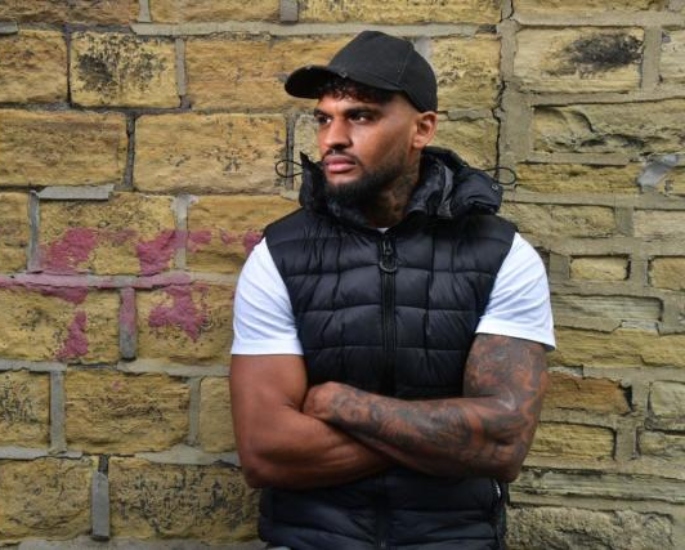
People usually point fingers towards councils and government intervention (or the lack thereof). But there is an abundance of things that a community can do for itself.
Attitudes need to be changed. We cannot avoid difficult conversations and try to protect izzat at the expense of any more generations.
Dr Ikhlaq Din believed that the culture of secrecy surrounding gang culture is what enables it to spread and flourish.
We must name those involved, condemn their actions and most importantly, encourage rehabilitation.
Action must also be taken by people. Mosques and community centres can offer free therapy and counselling services.
Some have already started to offer this such as the Al Madina Mosque in Barking, East London. On their website, they state:
“Over a number of years at Al Madina Mosque we noticed the community suffering an ever-rising tide of social ills.
“We saw a growing number of our youth engaged in drug-related activities, rising alcoholism, increased violence amongst family members and a rise in taboo subjects such as sexual violence and assault.
“At Al Madina Mosque we decided the community needed to help itself.”
“Our professional counselling service, now in its 10th year deals with the whole myriad of social ills.
“Ranging from domestic violence and abuse, rape, forced marriage, substance abuse, incest, depression, alcoholism, gang-related issues, radicalisation and anxiety to mention a few.”
Child abuse is a recurring factor in those who become gang-affiliated.
Children are in many ways an oppressed class, reliant on the voices of adults who are oftentimes their oppressors.
What are you doing to protect and empower the leaders of tomorrow?
Just Jah, a content creator, was groomed into joining a gang at only 11 years old.
He now runs his own boxing club for children and creates documentaries on YouTube, amplifying the voices of young men who need to be heard.
For Usman and Zara, education was their salvation. They were guided by teachers and StudyTubers like Ibz Mo and Vee Kativhu.
Mentorship programs, led by older students in university, for those still in school, could also prove powerful.
Imagine if, in the search for role models, an 11-year-old boy could turn to a mentor like Usman, someone who grew up in deprivation but raised above, instead of a local drug dealer.
The transformative power of education cannot be overstated but there are also other things on offer.
Local businesses should be encouraged to offer apprenticeships and internships for their youth.
There is an entrepreneurial spirit to those who participate in gang culture which could become a dynamic tool for change if fostered and nurtured by the right people.
As Zara said, it is often hard to see a world outside of the violence and depravity of your hometown when you are at the heart of it.
Businesses, universities, and charities with the means to do so should facilitate visits to their institutions, allowing young people to see the exciting world and futures that await them.
Ending gang culture is a long-term process that requires a sustained effort and collaboration among all segments of the community.
It’s important to address the systemic issues that contribute to gang involvement while simultaneously offering support and alternatives to those at risk.
In towns like Bradford, Blackburn, or Rochdale, it may seem like the best advice to give anyone is to “keep your head down.”
What if this is entirely the wrong approach? What if instead you took ownership of your narrative and kept your held head high?
There is only so much one can achieve in a perpetual state of shame and self-loathing.
We must take ownership of our narratives, our history, and our futures in their entirety.
We must tackle problems by admitting they exist and looking within ourselves before anything else. This is the first true step to creating long-lasting change.








